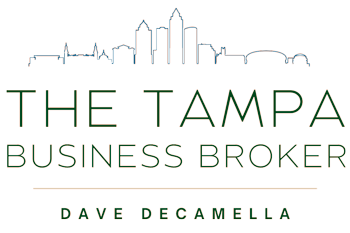
To get the best deal when selling a business, it’s important to have a strategic plan. This involves setting your goals, getting help from professionals, thoroughly valuing your business, keeping the sale private, and carefully assessing potential buyers. By following these steps and making informed choices, you can increase your chances of a successful sale and ensure a smooth transition for your business.
Define Your Goals
It is important to set clear goals before starting to sell, which includes understanding your motivations such as maximizing profit, securing the business’s legacy, or finding the right successor. This clarity will allow you to assess potential deals objectively and make well-informed decisions.
Seek Professional Assistance
If you hire professionals who are skilled in business sales, like brokers, accountants, and lawyers, it can increase your chances of getting a good deal. These experts have knowledge of the market and can negotiate well, which will help you deal with complicated transactions, do proper research, and evaluate offers properly.
Valuation and Market Analysis
To accurately determine the worth of your business, you should conduct a comprehensive business valuation. You can get the help of a business broker to assess your assets, revenue, intellectual property, and market position. I do not charge for business valuation. I start with a confidential analysis of your operations, finances, market potential and trends. I then use this information to generate a business profile that I can put in context with market conditions.
Confidentiality
To safeguard your business’s reputation and prevent disruption, it is crucial to maintain confidentiality during the selling process. Make sure that anyone interested in buying signs a non-disclosure agreement (NDA) before gaining access to sensitive information. Breaching confidentiality could damage your business’s value and relationships with employees, suppliers, and customers.
Identify Potential Buyers
Create a thorough list of potential purchasers who may be interested in purchasing your company. This could consist of competitors, investors in the sector, private equity firms, or individuals looking for chances to start their own businesses. Expanding the scope broadens the possibility of drawing in genuine buyers and obtaining competitive proposals.
Qualify and Assess Buyers
After potential buyers show interest, evaluate their qualifications and compatibility. Factors to consider include their financial capabilities, industry expertise, business acumen, and long-term vision for your company. Assess if their values match yours and if they have the necessary resources to effectively manage the business after the sale.
Negotiate the Terms
During the negotiation of the deal, it’s important to take into account factors that go beyond just the purchase price. These can include things like the payment structure, such as whether you pay in cash upfront, installments, or based on future performance. It’s also important to consider non-financial aspects such as transition assistance, employment contracts, and non-compete agreements. Aim for a balanced deal that protects your interests while also incentivizing the buyer’s dedication to the deal.
Due Diligence
Make sure to carefully examine potential buyers to confirm that they have the necessary financial stability, good reputation, and past performance. Look closely at their proposed business plans, financial records, legal background, and references. Consider hiring professionals to help with the due diligence investigation to avoid missing any important information.
Assess Risk and Contingencies
Assess the possible risks related to the agreement and develop backup plans to reduce them. These risks may involve variations in market conditions, regulatory obstacles, or unexpected economic circumstances. Evaluating and preparing for these risks beforehand can safeguard your benefits throughout the deal and after its completion.
Time the Market
To get the best price and attract more competitive offers, it’s important to sell your business at the right time. Check for factors such as market conditions, industry trends, and overall economic climate. Keep track of indicators such as interest rates, industry growth rates, and buyer demand for an optimal timing.
Seek Professional Assistance
If you hire professionals who are skilled in business sales, like brokers, accountants, and lawyers, it can increase your chances of getting a good deal. These experts have knowledge of the market and can negotiate well, which will help you deal with complicated transactions, do proper research, and evaluate offers properly.
Business brokers are experts at helping you sell your business, similar to a real estate agent selling your house. My expertise includes pricing your business based on comparable sales data and finding the right buyer for it. With our assistance, you can feel confident throughout the entire process of transferring your company to new ownership. Reach out to The Tampa Business Broker today for a FREE consultation!
